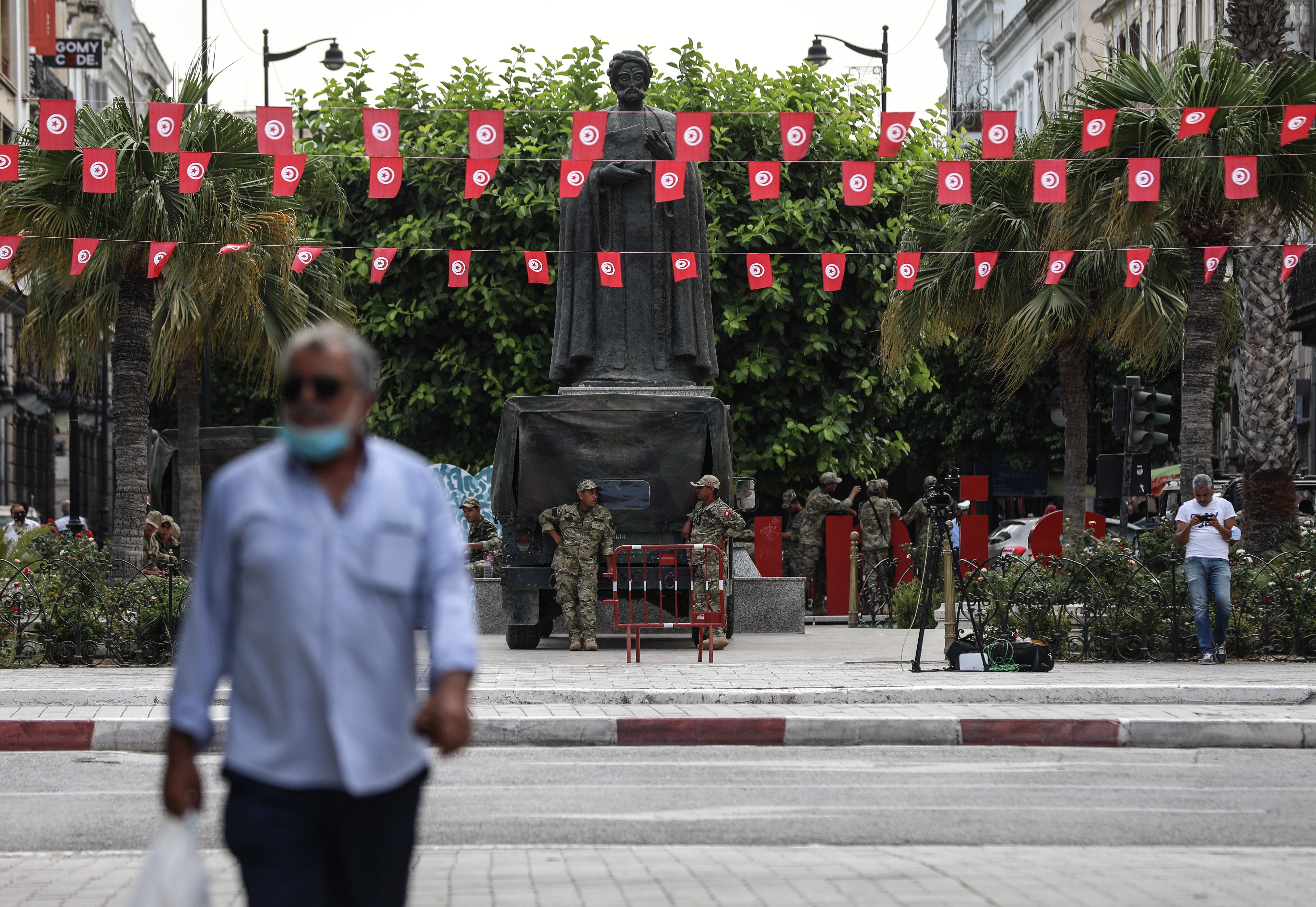Senior Ennahda official summoned as part of broader opposition crackdown by Tunisian President
Anouar Maarouf was reportedly called to the police station where he was told his movements were to be restricted to the neighbourhood where he live

Tunisia’s interior ministry has summoned a senior official of Tunisa’s moderate islamist Ennahda party and placed movement restrictions on him, the latest in a widening crackdown on opponents of Tunisian president Kais Saied, who has dismissed the government and parliament.
Anouar Maarouf was from 2016-20 minister of communications and technology, a government department which Saied has suggested parties tried to manipulate for their own advantage.
He is the most prominent member of the party to be targeted since President Kais Saied dismissed the prime minister and suspended parliament on July 25 in moves Ennahda has branded a coup.
Ahmed Gaaloul, a former youth and sports minister and current senior adviser to the party leader Rached Ghannouchi, told The Independent Maarouf was called to the police station where he was told his movements were to be restricted to the neighbourhood where he lives.
He may also have to inform the police of his movements within his district, Mr Gaaloul added. The Interior Ministry was not immediately available for comment. Ennahda is one of four political parties that the judiciary said last week it was investigating over foreign financing.
“There are no declared charges. The Minister of Interior has the right to take exceptional measures under emergency law declared by President Saied,” Gaalol added.
He said it was another “tool” to put pressure on Ennahda.
“Now they have Anouar Maarouf tomorrow it will someone else, they are targeting all regions in the public sphere not just the Ennahda Party,”
“We call for a dialogue with Mr Kais Saied even if we disagree with him. We think what he is doing is unconstitutional and unlawful but dialogue is the best course,” Gaaloul added.
Tunisia has long been heralded as the success story of the Arab Spring uprisings in 2011 , which saw the overthrow of long-time Tunisian president Zine El Abidine Ben Ali.
But last month President Kais Saied plunged the country into its deepest political crisis in a decade by firing the country’s prime minister, defence and justice ministers as well as freezing the parliament. Troops were also deployed to the legislature building and large gatherings banned.
The dramatic move has been labelled a “coup” by experts and the president’s staunchest critics including those in Ennahda. It followed nation-wide rallies by protesters demanding the resignation of the premier and dissolution of the parliament, after a disastrous response to the pandemic and economic woes.
But few expected the president to make such a drastic move, although he appears to have popular support.
Mr Saied, a former constitutional lawyer, has vehemently denied that he instigated a coup and said he pushed forward with the measures in response to calls from the street.
Since then several politicians and officials have been detained or put under investigation, including on old warrants that were implemented after the president lifted parliamentary immunity.
Saied has moved to gain direct control over the Interior Ministry and Communications and Technology Ministry, replacing the ministers in charge of both.
This week, he said he would not accept future communications and technology ministers being linked to political parties that might want control over citizens’ data.
Ennahda is one of four political parties that the judiciary said last week it was investigating over foreign financing.
Ennahda says it has not broken any rules.
Mr Gaaloul said that Ennahda would be open to considering snap elections. His tone was more reconciliatory than previous statements by leading Ennahda officials such as Ghannouchi, who is also the parliament speaker.
“We hope we can sit at a table and have proper dialogue with Mr Saied. In our view what he is doing is wrong, it is not in the best interests of the Tunisian people,” he added.
Join our commenting forum
Join thought-provoking conversations, follow other Independent readers and see their replies
Comments
Bookmark popover
Removed from bookmarks